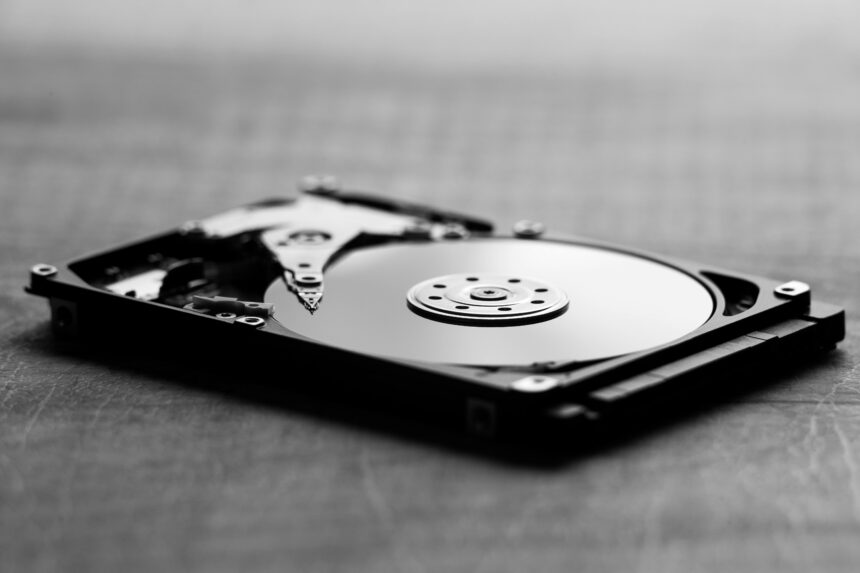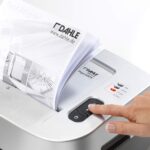Introduction of Best 6TB Hdd Hard Drives:
Welcome to our comprehensive guide to the best HDD shredders available in the market. In this article, we’ll delve into the world of data security and introduce you to five top-rated HDD shredders to keep your sensitive information safe.
Understanding the Importance of 6TB Hard Drives for Data Storage
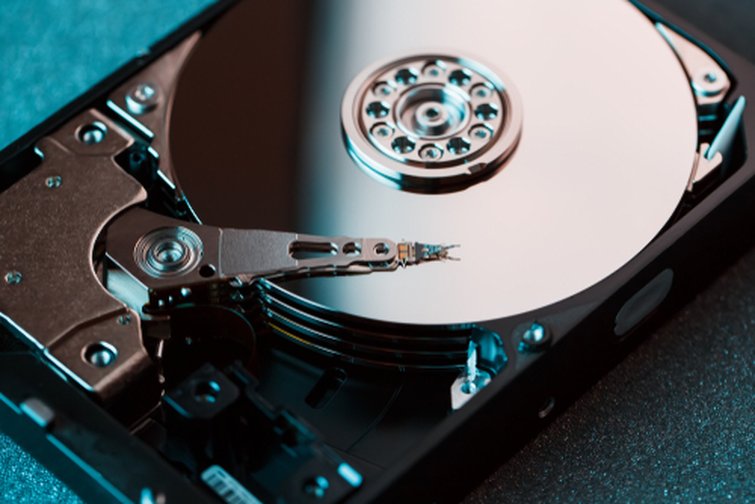
In today’s digital world, where data is generated at an unprecedented rate, the significance of reliable and spacious data storage solutions cannot be overstated. A 6TB hard drive serves as a powerful tool in this arsenal, offering ample space to store vast amounts of information, from high-definition videos and extensive software libraries to massive databases and detailed digital archives. Beyond sheer storage capacity, 6TB hard drives boast several other benefits, including improved organization by consolidating data in one place, enhanced performance by reducing dependency on multiple storage devices, and better data security through centralized backup solutions. Investing in a 6TB hard drive is not merely about securing space; it’s about embracing efficiency, reliability, and peace of mind in managing digital resources.
The 10 Best 6TB Hdd Hard Drives
1. Seagate IronWolf 6TB NAS Internal Hard Drive
 4.8Very Good
4.8Very GoodSeagate IronWolf 6TB NAS Internal Hard Drive
The Seagate IronWolf 6TB NAS Internal Hard Drive is designed specifically for network-attached storage (NAS) systems, offering high performance and reliability. With a 7200 RPM rotational speed and AgileArray technology, this HDD delivers smooth data transfer and optimal responsiveness.
Maker: Seagate
Features:
- 6TB storage capacity
- 7200 RPM rotational speed
- Designed for NAS systems
- AgileArray technology for enhanced reliability
- Supports multi-user environments
- IronWolf Health Management for proactive monitoring
Benefits:
- Seamless performance for NAS applications
- Increased reliability and durability
- Suitable for multi-user environments
- Proactive monitoring for data integrity
Pros:
- High capacity storage
- Fast data transfer speeds
- Long-term reliability
Cons:
- May produce some noise due to high rotational speed
2. WD Red 6TB NAS Internal Hard Drive
 4.8Very Good
4.8Very GoodWD Red 6TB NAS Internal Hard Drive
The WD Red 6TB NAS Internal Hard Drive is another excellent choice for NAS systems, offering reliable performance and compatibility with a wide range of devices. With WD’s exclusive NASware 3.0 technology, this HDD is optimized for 24/7 operation.
Maker: Western Digital
Features:
- 6TB storage capacity
- Designed for NAS systems
- NASware 3.0 technology for enhanced compatibility
- 5400 RPM rotational speed
- 3D Active Balance Plus for smooth operation
Benefits:
- Optimized for continuous operation
- Enhanced compatibility with NAS systems
- Reduced vibration for improved reliability
Pros:
- Quiet operation
- Low power consumption
- Excellent compatibility
Cons:
- Slower rotational speed compared to some competitors
3. Toshiba X300 6TB Performance Desktop and Gaming Hard Drive
 4.8Very Good
4.8Very GoodToshiba X300 6TB
The Toshiba X300 6TB Performance Desktop and Gaming Hard Drive is ideal for users seeking high-capacity storage for gaming, multimedia, and other demanding applications. With a 7200 RPM rotational speed and large cache size, this HDD delivers fast performance.
Maker: Toshiba
Features:
- 6TB storage capacity
- 7200 RPM rotational speed
- Designed for desktop and gaming applications
- Large cache size for improved performance
- Ramp-loading technology for data protection
Benefits:
- High-speed performance for gaming and multimedia
- Ample storage capacity for large files
- Enhanced data protection features
Pros:
- Fast data transfer speeds
- Reliable performance
- Suitable for gaming enthusiasts
Cons:
- May be slightly noisy under heavy load
4. HGST Ultrastar 7K6000 6TB Enterprise Hard Drive
 4.8Very Good
4.8Very GoodHGST Ultrastar 7K6000 6TB Enterprise Hard Drive
The HGST Ultrastar 7K6000 6TB Enterprise Hard Drive is engineered for enterprise-level applications, offering exceptional reliability and performance. With a 7200 RPM rotational speed and advanced media caching technology, this HDD delivers consistent results.
Maker: HGST
Features:
- 6TB storage capacity
- 7200 RPM rotational speed
- Designed for enterprise-level applications
- Advanced media caching technology
- Self-encrypting drive option for data security
Benefits:
- High reliability for mission-critical operations
- Enhanced performance for demanding workloads
- Optional data encryption for security compliance
Pros:
- Excellent durability
- Consistent performance
- Ideal for server environments
Cons:
- Higher price point compared to consumer-grade HDDs
5. Seagate BarraCuda 6TB Internal Hard Drive HDD
 4.8Very Good
4.8Very GoodSeagate BarraCuda 6TB Internal Hard Drive HDD
The Seagate BarraCuda 6TB Internal Hard Drive HDD is a versatile storage solution suitable for a wide range of applications, including desktop PCs, workstations, and gaming consoles. With a 5400 RPM rotational speed and multi-tier caching technology, this HDD offers reliable performance.
Maker: Seagate
Features:
- 6TB storage capacity
- Versatile compatibility with various devices
- 5400 RPM rotational speed
- Multi-tier caching technology for improved responsiveness
- 2-year limited warranty for peace of mind
Benefits:
- Broad compatibility with different devices
- Reliable performance for everyday use
- Cost-effective storage solution
Pros:
- Quiet operation
- Low power consumption
- Easy installation process
Cons:
- Slightly slower rotational speed compared to higher-end models
6. Western Digital Gold 6TB Enterprise Class Internal Hard Drive
 4.8Very Good
4.8Very GoodWestern Digital Gold 6TB Enterprise Class
The Western Digital Gold 6TB Enterprise Class Internal Hard Drive is engineered for demanding enterprise applications, delivering high capacity and reliability. With a 7200 RPM rotational speed and advanced vibration protection technology, this HDD ensures smooth operation in multi-drive environments.
Maker: Western Digital
Features:
- 6TB storage capacity
- Designed for enterprise applications
- 7200 RPM rotational speed
- Advanced vibration protection technology
- RAID-specific time-limited error recovery (TLER)
Benefits:
- High capacity storage for enterprise environments
- Enhanced reliability and data protection
- Designed for RAID configurations
Pros:
- Optimized for 24/7 operation
- Backed by a 5-year limited warranty
- Suitable for data-intensive applications
Cons:
- Higher price point compared to consumer-grade HDDs
7. LaCie d2 Professional 6TB External Hard Drive
 4.8Very Good
4.8Very GoodLaCie d2 Professional 6TB External Hard Drive
The LaCie d2 Professional 6TB External Hard Drive combines high performance and sleek design, making it perfect for creative professionals and multimedia enthusiasts. With Thunderbolt 3 connectivity and a durable aluminum enclosure, this HDD offers reliability and versatility.
Maker: LaCie
Features:
- 6TB storage capacity
- Thunderbolt 3 interface for high-speed connectivity
- Aluminum enclosure for durability and heat dissipation
- Designed for professional use
- Compatibility with Time Machine for Mac users
Benefits:
- High-speed data transfer for demanding tasks
- Enhanced durability and heat dissipation
- Time Machine compatibility for Mac backups
Pros:
- Stylish design
- Quiet operation
- Advanced data protection features
Cons:
- Higher price point compared to standard external HDDs
8. WD My Book 6TB External Hard Drive
 4.8Very Good
4.8Very GoodWD My Book 6TB External Hard Drive
The WD My Book 6TB External Hard Drive offers reliable storage and backup solutions for home users and small businesses. With automatic backup software and password protection, this HDD ensures the security and safety of your valuable data.
Maker: Western Digital
Features:
- 6TB storage capacity
- External hard drive with USB 3.0 interface
- Automatic backup software for easy data protection
- Password protection and hardware encryption
- Compact design for desktop use
Benefits:
- Easy setup and use with automatic backup software
- Secure data protection with password encryption
- Ample storage space for backups and multimedia content
Pros:
- Affordable storage solution
- Compatible with Windows and Mac systems
- Backed by a 3-year limited warranty
Cons:
- May require reformatting for use with Mac systems
9. HGST Deskstar NAS 6TB Internal Hard Drive
 4.8Very Good
4.8Very GoodHGST Deskstar NAS 6TB Internal Hard Drive
The HGST Deskstar NAS 6TB Internal Hard Drive is engineered for NAS applications, delivering high capacity and reliability for home and small business users. With a 7200 RPM rotational speed and advanced error recovery control, this HDD ensures data integrity and smooth operation.
Maker: HGST
Features:
- 6TB storage capacity
- Designed for NAS systems
- 7200 RPM rotational speed
- Advanced error recovery control
- Extended availability for 24/7 operation
Benefits:
- Ample storage space for NAS environments
- Enhanced data integrity and reliability
- Suitable for home and small business users
Pros:
- Fast data transfer speeds
- Low power consumption
- Quiet operation
Cons:
- May be slightly more expensive than some alternatives
10. Seagate Exos 7E8 6TB Enterprise Internal Hard Drive
Seagate Exos 7E8 6TB Enterprise Internal Hard Drive
The Homall Gaming Chair combines sleek design with ergonomic features for optimal comfort and support. Made with high-quality materials and adjustable components, this chair is suitable for gamers of all sizes. With its reclining feature and 360-degree swivel, you can easily find your perfect gaming position.
Maker: Seagate
The Seagate Exos 7E8 6TB Enterprise Internal Hard Drive is designed for mission-critical applications, offering high reliability and performance for enterprise environments. With a 7200 RPM rotational speed and advanced caching technology, this HDD delivers consistent results.
Features:
- 6TB storage capacity
- Designed for enterprise applications
- 7200 RPM rotational speed
- Advanced caching technology
- PowerBalance feature for optimized power consumption
Benefits:
- High reliability for critical operations
- Enhanced performance for demanding workloads
- Optimized power consumption for efficiency
Pros:
- Designed for 24/7 operation
- Excellent durability
- Backed by a 5-year limited warranty
Cons:
- Higher price point compared to consumer-grade HDDs
Factors to Consider When Choosing a 6TB Hard Drive for Data Storage
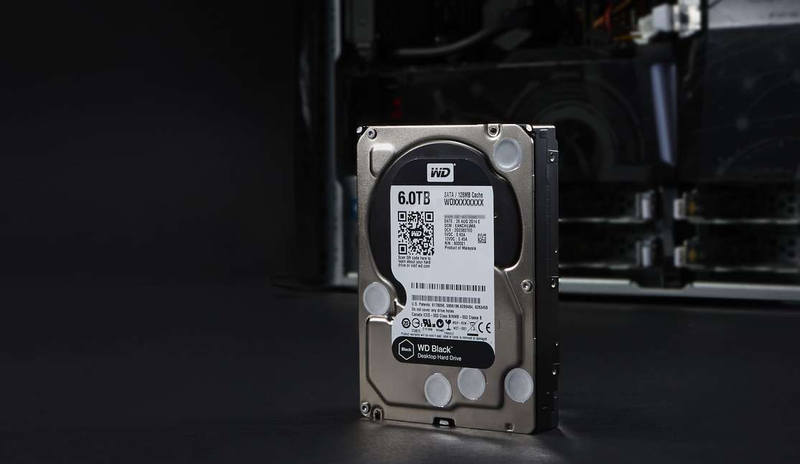
When selecting an HDD (Hard Disk Drive) shredder, it’s crucial to consider several factors to ensure you choose the right one for your needs. Here are some key factors to consider:
- Security Level: Determine the level of security you require for your data. Shredders offer different shredding methods such as strip-cut, cross-cut, and micro-cut. Cross-cut and micro-cut shredders provide higher levels of security by shredding documents into smaller particles.
- Shredding Capacity: Consider the volume of hard drives or other media you need to shred regularly. Choose a shredder with a capacity that meets your shredding demands. Look for specifications such as sheets per pass or drives per hour to determine the shredder’s capacity.
- Destruction Speed: Assess the speed at which the shredder can destroy hard drives. For high-volume shredding environments, opt for a shredder with fast shredding speeds to ensure efficiency and productivity.
- Durability and Build Quality: Look for a shredder with durable construction and high-quality materials. A robust shredder will withstand heavy use and ensure longevity, reducing the need for frequent replacements.
- Safety Features: Ensure the shredder has adequate safety features to prevent accidents and injuries. Features such as automatic shut-off in case of jams, safety sensors, and finger-safe technology are essential for safe operation.
- Ease of Use: Choose a shredder that is easy to operate and maintain. Look for features such as automatic start/stop, reverse function for clearing jams, and easy-to-empty waste bins to simplify the shredding process.
- Size and Portability: Consider the size and portability of the shredder, especially if space is limited or if you need to move the shredder between locations. Compact and portable shredders are ideal for small offices or mobile shredding operations.
- Noise Level: Evaluate the noise level of the shredder, especially if it will be used in a shared workspace. Look for shredders with quiet operation to minimize disruptions and create a comfortable work environment.
- Brand Reputation and Warranty: Research the reputation of the brand and read reviews from other users to ensure reliability and customer satisfaction. Additionally, choose a shredder that comes with a warranty to provide peace of mind and protection against defects.
- Cost and Budget: Finally, consider your budget and the overall cost of the shredder, including maintenance and replacement parts. While it’s essential to invest in a quality shredder, ensure it aligns with your budget and provides value for money in the long run.
By considering these factors, you can select the right HDD shredder that meets your security requirements, shredding volume, and operational needs.
How to Maximize the Storage Capacity of a 6TB Hard Drive
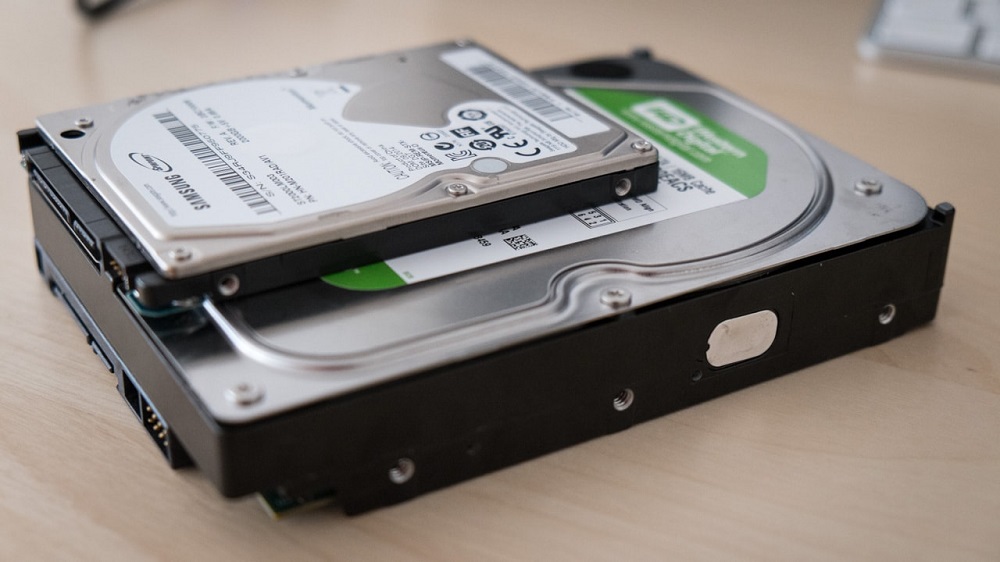
To maximize the storage capacity of a 6TB (terabyte) hard drive, you can follow several strategies to efficiently utilize the available space:
- Organize and Clean Up Files: Start by organizing your files and deleting any unnecessary or duplicate files. Use file management tools or software to identify large files or folders taking up significant space and decide whether they are essential or can be deleted.
- Use Compression: Consider compressing large files or folders to reduce their size and free up storage space. File compression tools like WinZip, WinRAR, or built-in compression utilities in operating systems can help compress files without compromising their quality.
- Move Less-Used Files to External Storage: Transfer infrequently accessed files, such as archived documents, photos, or videos, to external storage devices like external hard drives or cloud storage services. This frees up space on the 6TB hard drive for frequently used files and applications.
- Utilize Cloud Storage: Take advantage of cloud storage solutions such as Google Drive, Dropbox, or Microsoft OneDrive to store files and data online. Offloading files to the cloud not only saves space on the hard drive but also provides access to files from anywhere with an internet connection.
- Partition the Hard Drive: Divide the 6TB hard drive into multiple partitions to segregate data based on usage or categories. For example, you can create separate partitions for operating system files, applications, media files, and personal documents. Partitioning helps organize data and prevents one partition from consuming all available space.
- Implement Disk Cleanup Tools: Use built-in disk cleanup utilities or third-party software to remove temporary files, cache files, system logs, and other unnecessary data that accumulates over time. Regularly running disk cleanup tools helps reclaim storage space and improve system performance.
- Optimize Storage Settings: Adjust settings in operating systems and applications to optimize storage usage. For example, configure applications to store data or download files directly to secondary storage devices or cloud storage instead of the 6TB hard drive.
- Monitor Disk Usage: Keep track of disk usage regularly and take action to prevent the hard drive from reaching full capacity. Set up alerts or notifications to warn when storage space is running low, prompting you to take corrective measures proactively.
By implementing these strategies, you can effectively maximize the storage capacity of a 6TB hard drive and ensure efficient use of available space for storing files and data.
Tips to Ensure the Longevity of Your 6TB Hard Drive
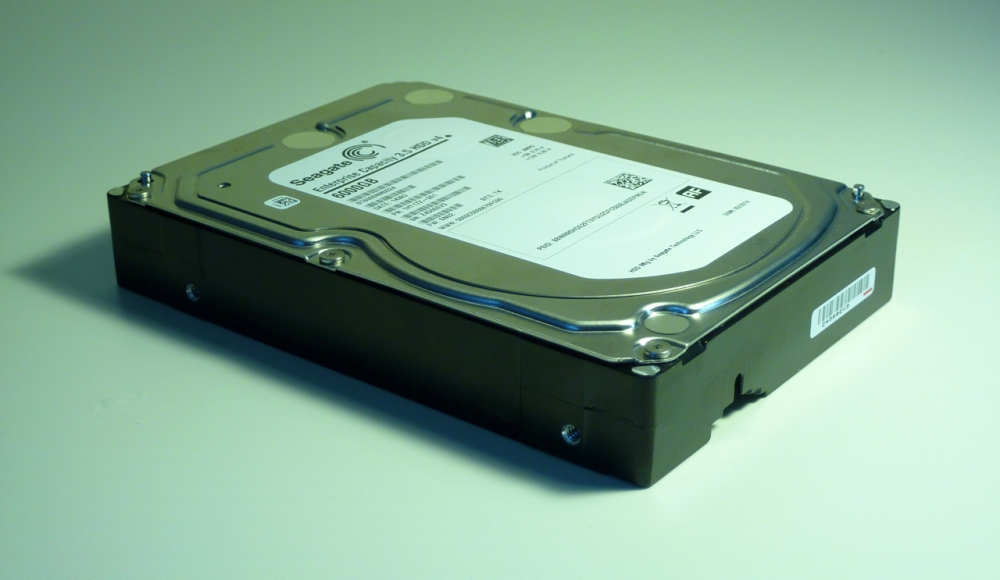
Ensuring the longevity of your 6TB hard drive is essential to protect your valuable data and maximize its lifespan. Here are some tips to help prolong the life of your hard drive:
- Keep the Hard Drive Cool: Excessive heat can damage the internal components of a hard drive over time. Ensure proper ventilation and airflow around the hard drive by placing it in a well-ventilated area. Avoid exposing the hard drive to direct sunlight or placing it near heat sources like radiators or heaters.
- Handle with Care: Hard drives are sensitive electronic devices and can be damaged by physical shocks or vibrations. Handle the hard drive with care and avoid dropping or jarring it. When transporting the hard drive, use protective cases or packaging to cushion it from impacts.
- Avoid Power Surges: Power surges and electrical fluctuations can cause damage to the hard drive’s circuitry. Use a surge protector or uninterruptible power supply (UPS) to protect the hard drive from voltage spikes and power outages. Unplugging the hard drive during electrical storms or when not in use for extended periods can also reduce the risk of damage.
- Perform Regular Backups: Regularly backing up your data ensures that you have a copy of your important files in case of hard drive failure or data loss. Use backup solutions like external hard drives, cloud storage services, or network-attached storage (NAS) devices to create multiple copies of your data and keep them in separate locations.
- Keep the Hard Drive Clean: Dust and debris can accumulate inside the hard drive enclosure, leading to overheating and potential damage. Periodically clean the exterior of the hard drive with a soft, dry cloth to remove dust and dirt. Avoid using compressed air, as it can cause static electricity buildup and damage sensitive components.
- Avoid Overfilling the Hard Drive: Avoid filling the hard drive to its maximum capacity, as this can lead to fragmentation and decreased performance over time. Aim to leave some free space on the hard drive to allow the operating system to perform optimization tasks and prevent excessive wear on the drive’s mechanical components.
- Use Disk Maintenance Tools: Regularly run disk maintenance tools such as disk defragmentation and error-checking utilities to optimize the performance and health of the hard drive. These tools help consolidate fragmented files, identify and repair disk errors, and ensure smooth operation of the hard drive.
- Monitor Hard Drive Health: Use diagnostic tools and software to monitor the health and performance of the hard drive. Keep an eye on parameters such as temperature, SMART (Self-Monitoring, Analysis, and Reporting Technology) attributes, and error rates to detect any signs of potential failure early and take appropriate action.
By following these tips, you can help ensure the longevity of your 6TB hard drive and safeguard your data against loss or damage.
Frequently Asked Questions (FAQs)
Q: How do I choose the right hard drive for my needs?
A: When selecting a hard drive, consider factors such as storage capacity, speed (RPM), interface (SATA, NVMe), form factor (2.5-inch, 3.5-inch), and reliability. Determine whether you need a traditional HDD for large storage capacity or an SSD for faster performance.
Q: What is the difference between HDD and SSD?
A: HDD (Hard Disk Drive) uses spinning magnetic disks to store data, while SSD (Solid State Drive) utilizes flash memory chips. SSDs are typically faster, more energy-efficient, and more durable than HDDs, but they are also more expensive per gigabyte of storage.
Q: How do I install a new hard drive in my computer?
A: To install a new hard drive, first, shut down your computer and disconnect the power cable. Open the case, locate an available drive bay, and mount the hard drive using screws. Connect the data and power cables to the hard drive and secure them in place. Close the case, reconnect the power cable, and power on your computer. You may need to format and partition the new hard drive before using it.
Q: How do I transfer data from my old hard drive to a new one?
A: You can transfer data from your old hard drive to a new one using backup and migration software or by manually copying files. Backup software like Acronis True Image or Macrium Reflect allows you to create a complete backup of your old drive and restore it to the new one. Alternatively, you can manually copy files from the old drive to the new one using file explorer or data migration tools provided by the drive manufacturer.
Q: How can I optimize the performance of my hard drive?
A: To optimize the performance of your hard drive, consider techniques such as defragmentation (for HDDs), enabling TRIM (for SSDs), disabling unnecessary startup programs, keeping the drive clean and free of clutter, and updating device drivers and firmware regularly. Additionally, upgrading to a faster or higher-capacity drive can improve performance.
Q: What should I do if my hard drive fails?
A: If your hard drive fails, immediately stop using it to prevent further damage and data loss. Attempt to recover data from the failed drive using data recovery software or services. If the drive is under warranty, contact the manufacturer for a replacement. Consider implementing a backup strategy to prevent data loss in the future.
Conclusion
In the digital age, having ample and reliable storage is not just convenient, it’s a necessity. The 6TB hard drives we’ve discussed offer a unique blend of capacity, durability, and speed. Whether you’re an avid gamer, a digital artist, or a professional with vast data management needs, investing in a high-quality 6TB hard drive is a wise decision. Remember, in a world brimming with data, the right storage solution can make all the difference.


